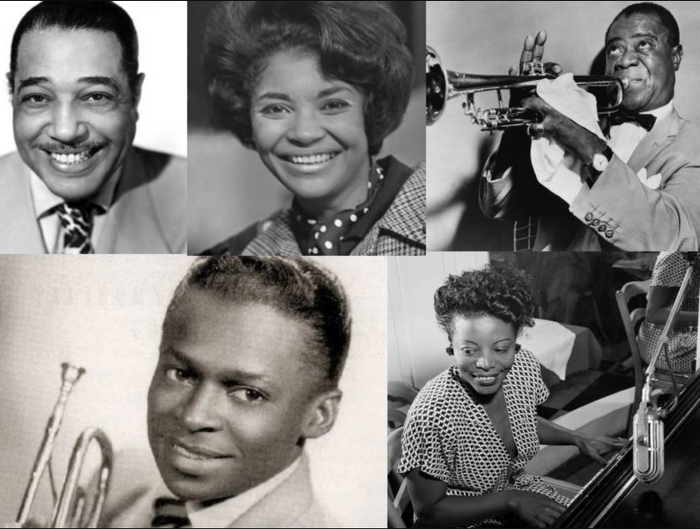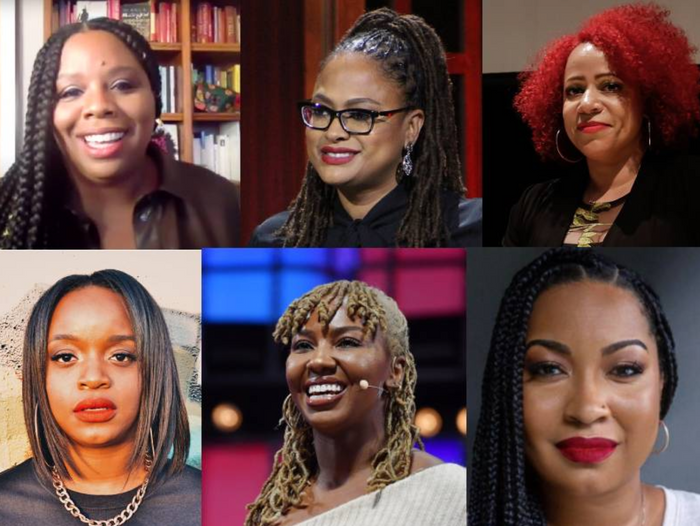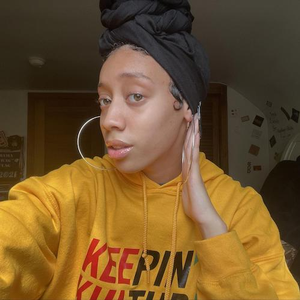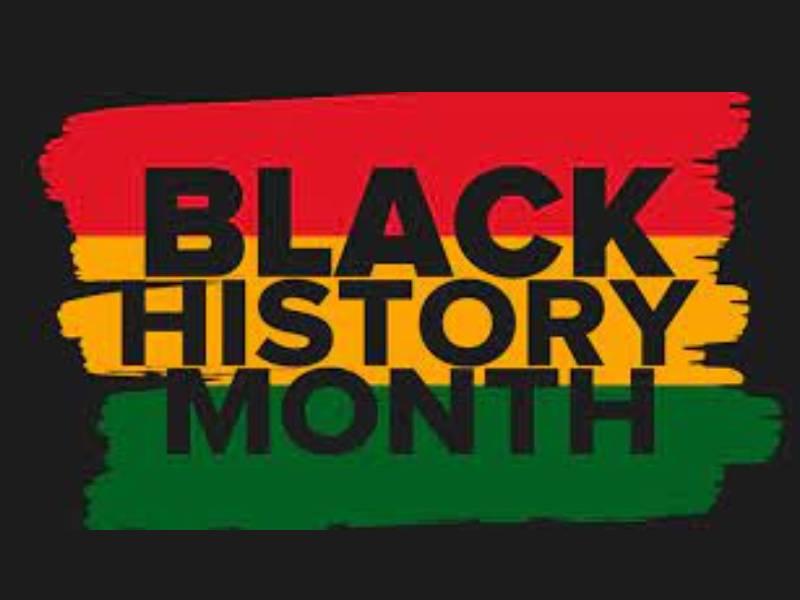Black history is a rich tapestry of stories, achievements, and struggles that have shaped American history. However, for too long, the narrative of Black history has been dominated by a few select stories, often presented through a Eurocentric lens that ignores the complexity and diversity of Black experiences.
To truly celebrate Black history, we must reimagine it. We must expand our understanding of Black history beyond a few select figures and events and embrace the full diversity of Black experiences. This requires a shift in perspective and a commitment to centering the voices and stories of Black people.

Female trailblazers in technology – (top left to right) Katherine Johnson, Valerie Thomas, (bottom left to right) Kimberly Bryant, Dr.Evelyn Boyd Granville, Dr.Shirley Ann Jackson
One way to reimagine Black history is to focus on the contributions of Black women, who have often been overlooked or marginalized in traditional narratives. From the pioneering activism of Ida B. Wells and Ella Baker to the groundbreaking scientific achievements of Mae Jemison and Katherine Johnson, Black women have played a central role in shaping American history. By elevating the stories of Black women, we can gain a deeper appreciation for the breadth and diversity of Black experiences.

Major jazz musicians of Black history – (top left to right) Duke Ellington, Nancy Wilson, Louis Armstrong, (bottom left to right) Miles Davis, and Mary Lou Williams.
Another way to reimagine Black history is to focus on the creative contributions of Black artists, writers, and musicians. From the jazz improvisations of Louis Armstrong to the soulful melodies of Aretha Franklin, Black artists have transformed American culture and brought joy and inspiration to millions. By celebrating the creative achievements of Black artists, we can gain a deeper appreciation for the richness and complexity of Black culture.

Modern Civil Rights Leaders – (top left to right) Patrisse Cullors, Ava Duvernay, Nikole Hannah-Jones, (botton left to right) Brittany Packnett Cunningham, Opal Tometi, Rachel Cargle.
We can also reimagine Black history by focusing on the ongoing social justice and equality struggles. While there have been many victories in the fight for civil rights, the battle for true equality and justice continues. By centring the stories of Black activists and organizers, we can better understand the ongoing struggles for racial justice and how Black people have been at the forefront of these movements.

Nok terracotta figures. Public domain
Finally, we can reimagine Black history by embracing a more global perspective. Black people have contributed to the world in countless ways, from the civilizations of ancient Africa to the revolutions of the Caribbean and beyond. By embracing a more global perspective, we can better appreciate how Black people have shaped world history.
Many persons and events occurring today are still regarded as history. Thus Black History Month does not have to be redundant. To work toward a better future, we ought to develop the practice of taking what we can from the past and applying it to the here and now. By centering the stories and contributions of Black women and men, artists, activists, and global communities, we can gain a deeper appreciation for the full breadth and diversity of Black experiences. This reimagined version of Black history can inspire us to build a more just and equitable society, one that is centered on the dignity and worth of every person, regardless of race, gender, or background. Black history is a continuous cycle that is not ending anytime soon, so let’s push past the redundancy mindset and continue building on what our ancestors have started.

Kyrah Page is currently a student at Lincoln University. She is also the CEO and founder of her own brand called “Keepin’ It Kultured.” Where she combines art with activism to empower, inspire and educate the Black community. She advocates for change, promotes black positivity, and addresses controversial issues. Kyrah is many things but most importantly she is an activist.





